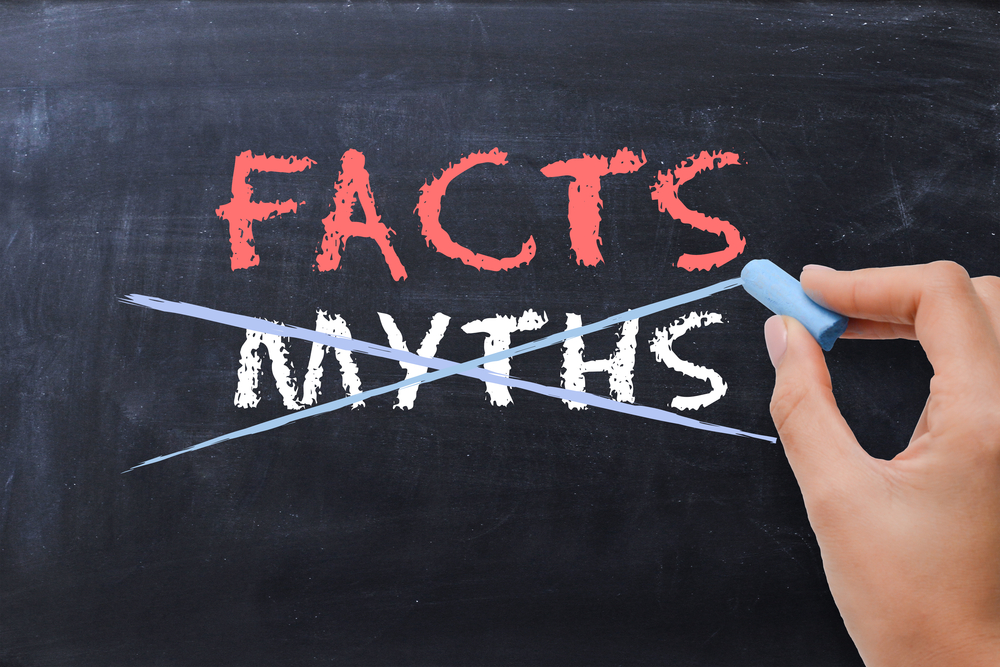Addressing the myths of opioid drug use and addiction
It is difficult to determine what separates fact from fiction with something as serious as opioid use.
The professionals at All Opiates Detox answer many questions about opioids. So we have decided to talk about some of the things we and other medical professionals hear on a regular basis.
You may be surprised by the truth about some of what you know about opiates – or what you believe you know. That is why we want to set the record straight.
You cannot become addicted to a prescribed opioid medication
This is a myth. Opioid pain medications are, indeed, quite powerful. Because of their nature, it is extremely important to follow all prescribed instructions in terms of how and when to take your medications.
Do not adjust your dosage. If you feel your dosage may need to be adjusted, or if you have any questions about your medication, contact your primary care physician or the physician who prescribed this mediation immediately.
If you take more medication, it will work better
That is sort of like saying if you flood your garden, it’s good and watered. That line of thinking is quite false. Not only does taking a higher dosage than prescribed not translate into more pain reduction, but over time it affects your tolerance of that prescription. Those who use a prescription medication build up a tolerance to their medication anyway. Speeding up this process will make the drug’s intended affect – pain relief – harder to achieve. And, your pain will likely still exist.
In other words, you are doing yourself no favors by taking a higher dosage. It is actually rather harmful.
Opioid medications do not have any long-term affects on its users
Addiction is the most obvious affect, but there are others which are also very notable.
Many long-term users of prescribed opiates will share a common, uncomfortable story. Opioid medications are proven to cause chronic constipation and, in some cases, bowel obstruction with some of its users. We can assure you, the procedure to remove fecal impaction can be quite uncomfortable.
Additionally, opioids may alter your hormones. This means your mood or libido (your sex drive) may be negatively altered. A serious hormone issue may also affect osteoporosis.
Pain medication can fix a patient’s pain
The reality is, pain medication can mask pain so a patient does not have to live in discomfort. It can also minimize pain so the patient can take the time to rest and heal. However, any pain medication in and of itself does not stop what causes the pain.
Look at it like this.
As a patient deals with pain, the doctor works on treating the cause of the pain so that the pain can not only end, but so the condition or injury has time to dissipate or heal. Pain medication is only a part of the puzzle. Also consider methods such as specific exercises to treat pain or help increase metabolism to create weight loss.
No one thing will always fix an ailment; it is often a combination of therapies (treatments, exercises and medications).
Opioid addiction is more about willpower and is a sign of weakness
A definite myth. Opioid addiction, or Opioid Use Disorder, deals with a person who feels compelled to continue using opioids, even recognizing the negative consequences. It’s not about weakness. Rather, it is often about prescribed opioid medications being needed for such a period of time that the user develops a tolerance to it. The pain is not reduced, more opioids are needed to treat pain and the ability to stop weakens.
Or, when they decide it is time to stop taking their opioid (prescribed or otherwise), their body experiences withdrawal symptoms.
A longer use of opioids affects how a brain functions, too. Less pleasure is derived from other parts of the user’s life. In fact, the opioid turns out to be one of the few things to give the brain a sense of reward.
So, it is definitely not only about willpower and inner-strength.
To speak with one of our compassionate medical professionals, call All Opiates Detox at (800) 458-8130.


